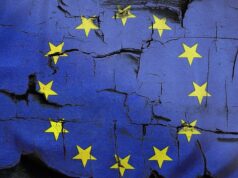In the documents that are available to the TIME, the Federal Government is the first concrete example of how it wants to respond to the initiative of French President Emmanuel Macron. He presented more than a year ago an ambitious plan for a far-reaching restructuring of the euro zone, with a joint finance minister, a common budget and a joint parliament.
The answer to these suggestions is something like the European political journeyman piece by Olaf Scholz. He is the minister responsible, it is his topic. Scholz has repeatedly negotiated with his French colleague Bruno Le Maire. He has met several times with negotiators from northern states such as the Netherlands, because they can not do anything with the Paris proposals.
So far, the ESM is only allowed to lend to countries that have been hit by a severe crisis – and only if those countries in turn implement tough reform requirements. Now the fund is to receive a new credit line, which can also benefit economically sound countries, without having to implement reforms. The logic: In other regions of the world, such a country, if caught up in a crisis, would be supported by its central bank. But the euro countries no longer have their own central bank. Therefore, the new monetary fund should take over this task.
A first application has already been discussed in Brussels: it could protect the other euro states if the conflict with Italy escalates and turbulences occur in the financial markets. However, the conditions for this are strict: the affected countries must be confronted with an „asymmetric economic shock beyond their political control“. And they have to comply with European budget rules. In concrete terms, the budget deficit must be less than three percent of economic output and the government debt ratio must not exceed 60 percent of economic output.
If the quota exceeds this threshold, the country must prove that it reduced it by at least 0.5 percentage points per annum over the three years prior to applying for the loan. Italy could not get a loan at the moment. For over-indebted countries a kind of insolvency procedure is to be introduced. However, there is no provision for these countries to be „automatically“ bankrupt if they apply for a loan. Justification: That would exacerbate crises.
The proposal follows a pattern that runs through all the documents: Where Macron relies on political visions, Scholz relies on technical details. And where Macron accelerates, Scholz comes on the brakes. This is also evident in the euro budget. The French wanted several hundred billion euros for it. The idea: from this pot investments are financed and countries in economic need supported. Scholz insists that this budget becomes part of the general EU budget. It would feed mainly from previously unspecified contributions by the member states – and whether there is additional money for it is unclear.



